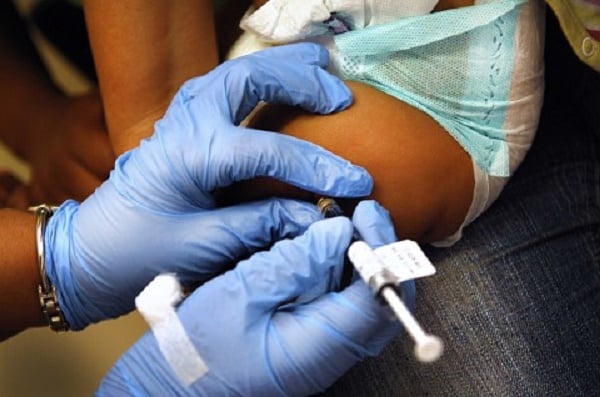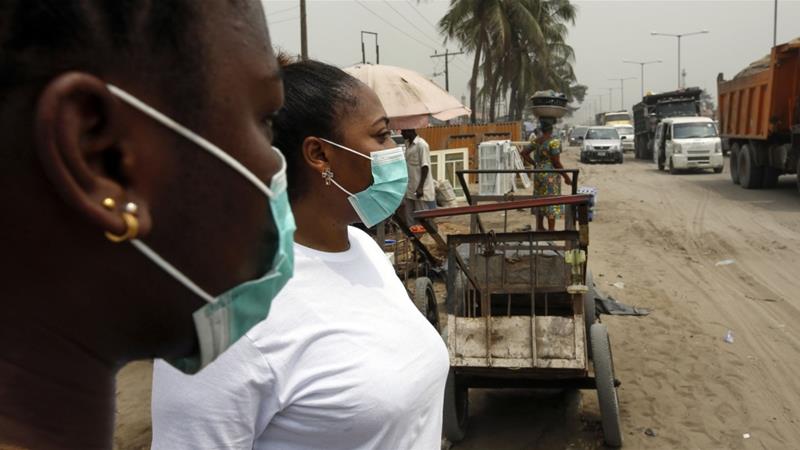Lagos to prosecute Funke Akindele for holding party during lockdown
BY STEPHEN AZUBUIKE
Mrs Funke Akindele Bello and her husband, JJC Skillz were on 6th day of April, 2020 charged and convicted for violating the social distancing directives of the Governor of Lagos State, Mr Babajide Sanwo-Olu, on 4th day of April, 2020 in their residence. In an article published on several platforms online, Inibehe Effiong Esq. believes the conviction has no legal basis to stand as same deserves to be quashed on appeal.
We intend to show below why it would amount to a wild goose chase to attempt to lodge an appeal against the conviction of the star actress and her husband.
Offence is known to law
Advertisement
The Lagos State Government on 21/3/2020 banned all religious and social gathering of over 20 people. Section 1(2) of the Lagos State Infectious Disease (Emergency Prevention) Regulations 2020 (“The Regulation”) provides that “All acts done prior to the commencement of these Regulations to curtail the spread of Coronavirus Disease 2019 (Covid 19) are hereby ratified.”
The pronouncement by the Governor on 21/3/2020 is an official proclamation that falls under one of the acts done prior to the commencement of the Regulation. It is therefore taken to have been incorporated by reference into the Regulation. Consequently, the gathering of over 20 people stands expressly and specifically prohibited in Lagos State. The demand by Inibehe Effiong that “The Infectious Disease Regulations 2020 should have expressly and specifically prescribed that gathering is restricted and prohibited in Lagos State before it can be relied upon to convict a violator in line with Section 36 (12) of the Constitution” was clearly met. Thus, the submission that Funke Akindele Bello and her husband were charged pursuant to an offence unknown to law holds no water.
The Regulation was made by the Governor in exercise of his powers under existing laws such as the Quarantine Act and the Public Health Law of Lagos State and qualifies as a subsidiary legislation. In effect, the Regulation has the force of law.
Advertisement
In the interpretation of criminal statutes, the courts are enjoined to focus on the overall purpose of these statutes which is the prevention and punishment of criminal offences. It is in this spirit that a person can be validly tried and convicted under a wrong law. So long as the defendant contravened an existing law, it is immaterial that (s)he was charged under a wrong law. See Egunjobi v. Federal Republic of Nigeria [2013] 3 NWLR (Pt. 1342) 534. The intention of the draftsmen of the Regulation can be clearly gleaned; that intention is to criminalise any action contrary to the dictates of the Regulation. See Section 17 of the Regulation.
It is submitted that Funke Akindele Bello and her husband were charged pursuant to an offence known to law.
Competing Regulations and the Doctrine of Covering the field
We must note that the Regulation and the Federal Government’s Covid-19 Regulation are not competing Regulations in actual sense, as Mr Effiong projects. There is currently no contention in that regard. At least, in the case of Dr. Olubukola Abubakar Saraki v. Federal Republic of Nigeria (2016) LPELR-40013(SC) the Supreme Court held that “Where the doctrine of covering the field is in vogue in the Constitution, any other legislation on the same field whether by the Federal/State Government must bow to the dictate of the Constitution. That other law/legislation, if not repugnant must be supplemental or subsidiary to the constitutional provision.” Drawing from the above pronouncement, it is idle to challenge the proceedings in Funke’s case on the basis of doctrine of covering the field. The Lagos State Governor and the President are by the Regulations working hand in hand to contain the Covid-19 pandemic in Lagos. The courts will see the Lagos Regulation as supplementary to that of the Federal Government and will not allow any defendant to use the doctrine of covering the field to escape justice.
Power to make Regulations
Advertisement
While it was submitted that the Governor has no power to make regulations under the Public Health Law (as same was vested in the Commissioner for Health), it was conceded by Mr Effiong that the Governor has powers to make regulations under the Quarantine Act. We must note that Commissioners in a State are the “servants” of the Governor appointed by him to assist in his constitutional mandate of effectively governing the State. No court will reasonably entertain the argument that the Regulation made by the Governor of Lagos should be nullified because it was the Commissioner that ought to make same pursuant to the Public Health Law, only; while turning a blind eye to even the Quarantine Act. It is submitted that there is nothing serious about the legal issue raised under this head as canvassed by Mr Effiong. The argument is untenable.
Punishment imposed
As a rule, without much ado, where the punishment ordered by a court exceeds that which the law prescribes, it may only be trimmed to fall in line with what the statute stipulates. It is absolutely inappropriate to describe same as “Illegal” in the strict sense by Mr Effiong.
Section 58 of the Public Health Law of Lagos State provides that “For any contravention of the provisions of this Law or any Regulation made under this Law FOR WHICH NO OTHER PENALTY IS PROVIDED…” A community reading of this provision and Section 17(2) of the Regulation appears to give the courts some measure of discretion. However, it is conceded that it is arguable whether imposing both fines and community service was proper in the circumstance.
Advertisement
Lagos State House of Assembly Approval
We must bear in mind that the Regulations drew breath from the Quarantine Act. There is nothing in the Act that expressly states that any Regulation made by a Governor pursuant to the Act can only be valid until the State House of Assembly approves same.
Whatever the merits of the contention that there is no proof of legislative endorsement by the Lagos State House of Assembly on the Regulation, it is arguable whether this is enough to nullify the Regulation, and by extension, the proceedings in Funke’s case. It is a notorious fact that the State is on a lockdown due to the Covid-19 pandemic. The effect of this on the smooth execution of legislative activities by the Lagos State House of Assembly is not in doubt. It would be difficult for any court to nullify the Regulation and the proceedings solely on this basis.
Advertisement
Conclusion
With respect, it is submitted that there is no compelling grounds of appeal sufficient to disturb the conviction and sentencing of Mrs Funke Akindele Bello and her husband in the entire circumstances of the case and on the face of their guilty plea. Any such appeal will be an academic exercise to the irritation of the court.
Advertisement
In making decisions, the courts are guided by the intention and purpose expressed in any piece of legislation, whether substantive or subsidiary. More so, the courts are also guided by public policy, to ensure that the Judiciary cooperates with the other arms of Government in discharging their constitutional mandate whenever the need arises. To that extent, courts of law are not moved by intelligent exercise of technical competence by the Ministers in the temple, but by the compelling and overriding need to ensure stability in the polity.
Advertisement
Views expressed by contributors are strictly personal and not of TheCable.






